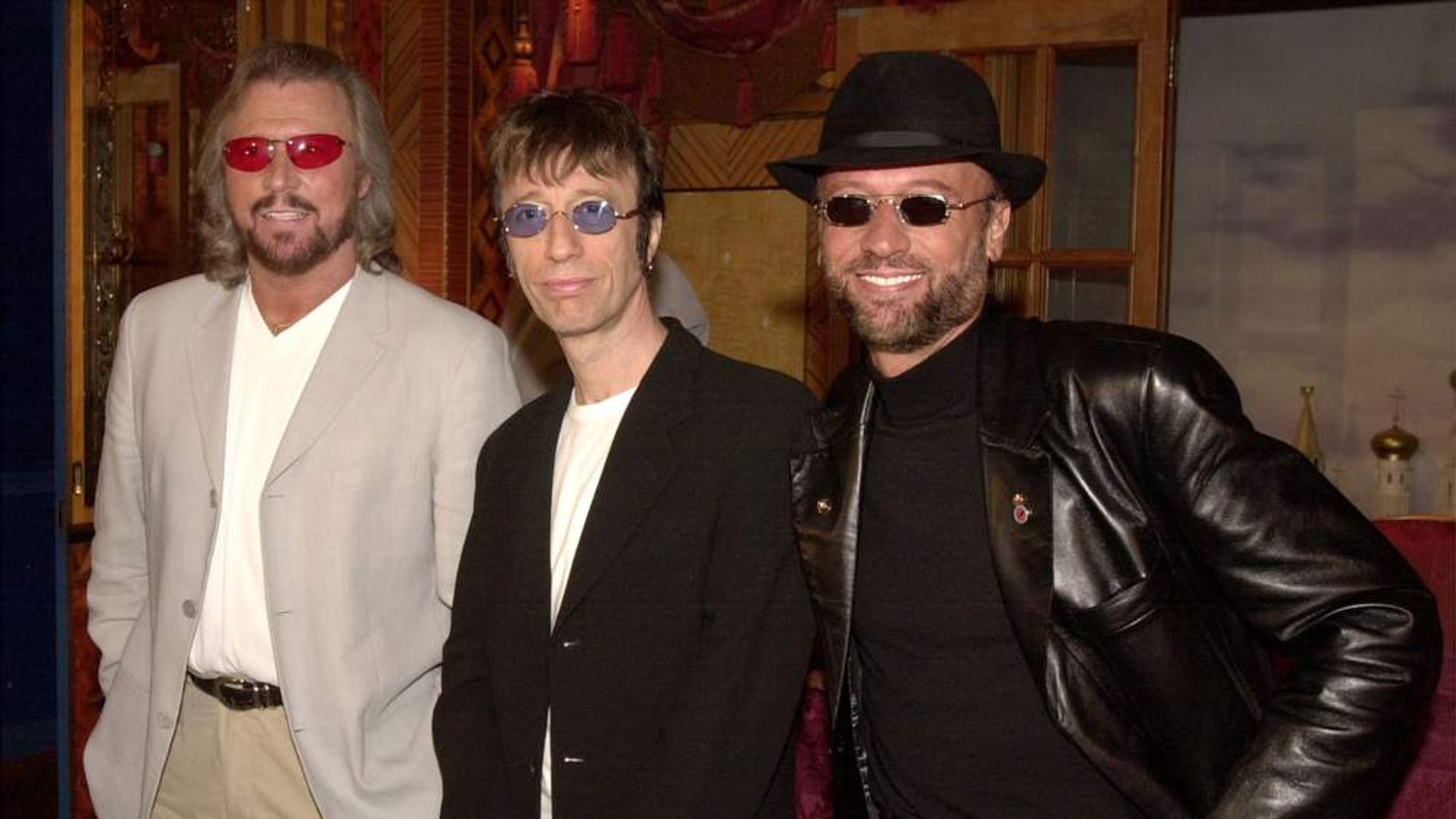Which Bee Gee killed himself and why has long been a topic of curiosity among music lovers and fans of the legendary Bee Gees. Robin Gibb, one of the three brothers who formed the iconic trio, was the member who tragically took his own life in 1980. His death sent shockwaves through the music industry and left fans heartbroken. Robin's struggles with mental health, combined with the pressures of fame and personal challenges, ultimately led to this devastating decision. While his brothers, Barry and Maurice, continued their musical journey, Robin's absence left a void that could never truly be filled. His story serves as a poignant reminder of the importance of mental health awareness and the unseen battles many face behind the glitz and glamour of stardom.
Robin Gibb was not just a talented singer and songwriter but also a deeply sensitive individual who grappled with the weight of expectations and the relentless demands of fame. The Bee Gees, known for their unique harmonies and timeless hits like "Stayin' Alive" and "How Deep Is Your Love," were at the height of their success during the late 1970s. However, the pressures of maintaining their status and navigating personal conflicts within the band took a toll on Robin. His decision to take his own life was a culmination of unresolved emotional struggles, professional tensions, and a sense of isolation that he could no longer endure.
Despite his tragic end, Robin Gibb's legacy lives on through the music he created and the impact he had on millions of fans worldwide. His story is not just one of sorrow but also of resilience, creativity, and the enduring power of art. By exploring the life and career of Robin Gibb, we can better understand the complexities of fame, the importance of mental health support, and the lessons we can learn from his untimely passing. This article delves into Robin's biography, his contributions to the Bee Gees, the circumstances surrounding his death, and the lasting influence he left on the world of music.
Read also:Allshub The Ultimate Guide To Boosting Your Online Presence
Table of Contents
- Biography of Robin Gibb
- Personal Details and Bio Data
- What Led to Robin Gibb's Tragic Decision?
- The Impact of Robin Gibb's Death on the Bee Gees
- How Did Robin Gibb's Mental Health Affect His Life?
- Robin Gibb's Contributions to Music
- Why Is Mental Health Awareness Important in the Music Industry?
- Frequently Asked Questions
Biography of Robin Gibb
Robin Gibb was born on December 22, 1949, in Douglas, Isle of Man, as one of the twin sons of Hugh and Barbara Gibb. Alongside his brothers Barry and Maurice, Robin grew up in a household filled with music, which laid the foundation for the Bee Gees' future success. The family moved to Australia in the 1950s, where the brothers began performing together as a vocal group. Their early performances on local television and radio helped them gain recognition, eventually leading to a record deal and international stardom.
Robin's voice was distinctive and soulful, often taking center stage in the Bee Gees' harmonies. His songwriting prowess contributed significantly to the band's catalog, including hits like "I've Gotta Get a Message to You" and "Massachusetts." Despite their success, the brothers faced numerous challenges, including internal conflicts and the pressures of maintaining their status in the ever-changing music industry. Robin's solo career, though less prominent than his work with the Bee Gees, showcased his versatility as an artist.
Personal Details and Bio Data
| Full Name | Robin Hugh Gibb |
|---|---|
| Date of Birth | December 22, 1949 |
| Place of Birth | Douglas, Isle of Man |
| Date of Death | May 20, 2012 |
| Occupation | Singer, Songwriter |
| Notable Works | Bee Gees, Solo Albums |
What Led to Robin Gibb's Tragic Decision?
Robin Gibb's decision to take his own life was influenced by a combination of personal, professional, and mental health challenges. The Bee Gees' immense success during the late 1970s brought with it immense pressure to maintain their status as global icons. This pressure, coupled with internal conflicts within the band, created a toxic environment for Robin. He often felt overshadowed by his brothers, particularly Barry, whose role as the lead vocalist sometimes left Robin questioning his own contributions.
Additionally, Robin struggled with substance abuse and depression, which further exacerbated his emotional turmoil. The isolation he felt during this period was compounded by the breakdown of his marriage and financial difficulties. Despite his outward success, Robin's inner struggles were profound, and he found himself unable to cope with the weight of his circumstances. His tragic decision to end his life was a heartbreaking culmination of these unresolved issues.
Factors Contributing to Robin's Struggles
- Fame and Pressure: The relentless demands of maintaining the Bee Gees' success took a toll on Robin's mental health.
- Family Dynamics: Tensions within the band, particularly with Barry, contributed to feelings of inadequacy.
- Substance Abuse: Robin's reliance on alcohol and drugs worsened his depression.
- Personal Losses: The breakdown of his marriage and financial troubles added to his emotional burden.
The Impact of Robin Gibb's Death on the Bee Gees
Robin Gibb's death left an indelible mark on the Bee Gees and their fans. The band, already reeling from the loss of their brother Andy Gibb in 1988, found it difficult to continue without Robin. Barry and Maurice, the remaining members, struggled to fill the void left by their brother's absence. Robin's unique voice and songwriting talents were irreplaceable, and his passing marked the end of an era for the group.
Despite their grief, Barry and Maurice continued to perform and create music, honoring Robin's memory through their work. The Bee Gees' legacy, however, was forever altered by his death. Fans around the world mourned the loss of a musical genius whose contributions to the band were immeasurable. Robin's story serves as a reminder of the fragility of life and the importance of supporting those who may be silently struggling.
Read also:Unlocking The Power Of Ed Telegram Channel Your Ultimate Guide
How Did the Music Industry React?
The music industry mourned Robin Gibb's passing, with tributes pouring in from fellow artists, industry professionals, and fans. Many highlighted his contributions to music and his role in shaping the sound of an entire generation. His death also sparked conversations about mental health and the need for greater support systems within the industry.
How Did Robin Gibb's Mental Health Affect His Life?
Robin Gibb's mental health struggles were a significant factor in his life and career. From an early age, Robin exhibited signs of emotional sensitivity, which, while contributing to his artistic talent, also made him vulnerable to depression and anxiety. As the Bee Gees' fame grew, so did the pressures of maintaining their success, leading to increased stress and emotional instability.
Signs of Robin's Mental Health Challenges
- Depression: Robin battled with feelings of sadness and hopelessness throughout his life.
- Anxiety: The pressures of fame often left him feeling overwhelmed and anxious.
- Isolation: Despite being part of a close-knit band, Robin often felt isolated and misunderstood.
Robin Gibb's Contributions to Music
Robin Gibb's contributions to music were vast and varied. As a member of the Bee Gees, he co-wrote and performed some of the most iconic songs of the 20th century. His vocal range and emotional depth added a unique dimension to the band's sound, making their music timeless and universally beloved.
Notable Songs Co-Written by Robin
- "I've Gotta Get a Message to You"
- "Massachusetts"
- "Words"
Why Is Mental Health Awareness Important in the Music Industry?
The music industry is often glamorized, but behind the scenes, many artists face significant mental health challenges. The pressures of fame, long tours, and public scrutiny can take a toll on even the most successful musicians. Robin Gibb's story underscores the need for greater awareness and support for mental health issues within the industry.
Steps Being Taken to Address Mental Health
- Support Networks: Organizations are creating support systems for artists struggling with mental health.
- Open Conversations: Encouraging open discussions about mental health is helping reduce stigma.
Frequently Asked Questions
Which Bee Gee killed himself and why?
Robin Gibb took his own life in 1980 due to a combination of mental health struggles, substance abuse, and the pressures of fame.
What were Robin Gibb's biggest hits with the Bee Gees?
Robin co-wrote and performed hits like "I've Gotta Get a Message to You," "Massachusetts," and "Words."
How did Robin Gibb's death impact the Bee Gees?
Robin's death left a void in the band, and while Barry and Maurice continued, the group's dynamic was forever changed.
In conclusion, Robin Gibb's life and legacy remind us of the importance of mental health awareness and the need to support those in the spotlight. His contributions to music continue to inspire, and his story serves as a poignant reminder of the unseen battles many face.


